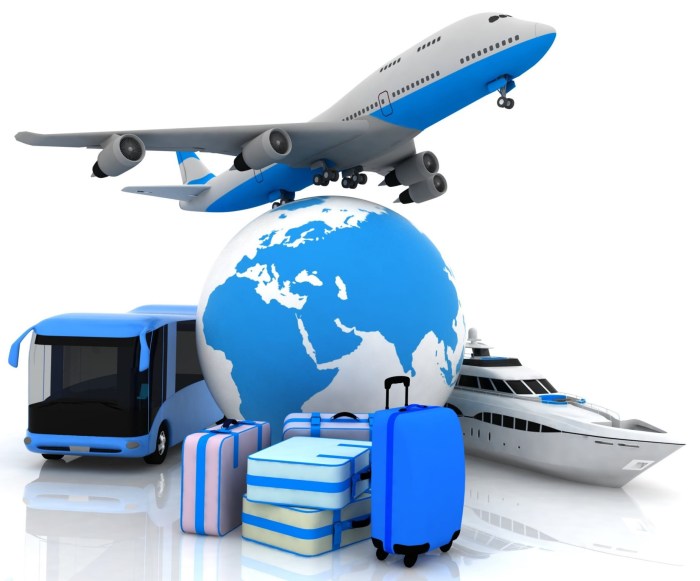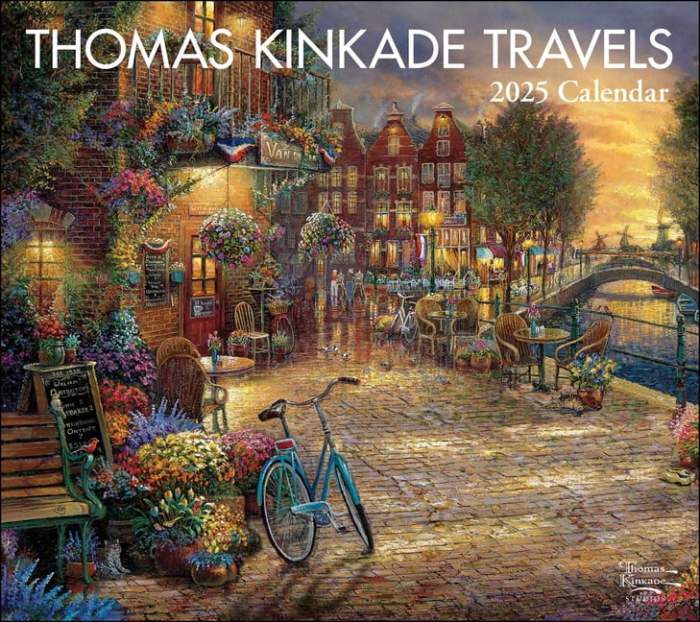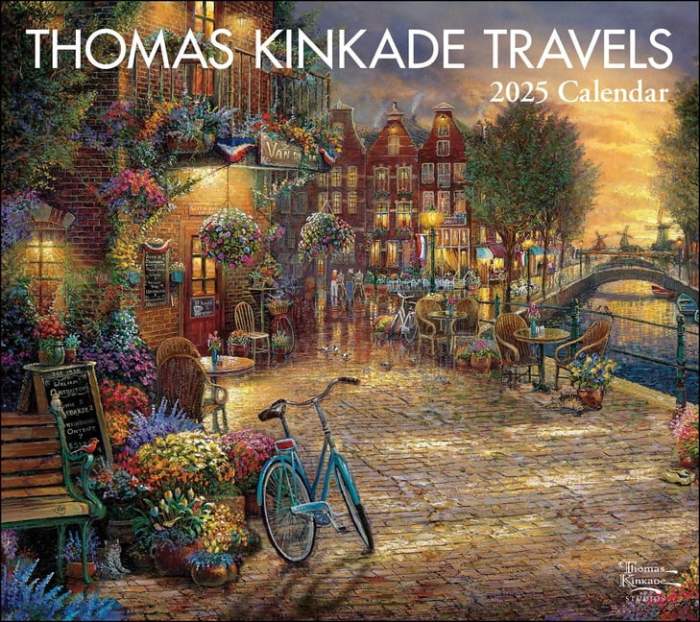How travel will be different after coronavirus is a question on many minds. The pandemic reshaped global norms, and this change is profoundly impacting how we plan, experience, and navigate the world of travel. From meticulous travel planning to new safety protocols, from altered accommodations to evolving transportation, everything is in flux. This exploration delves into the transformative effects of COVID-19 on the travel industry, outlining potential shifts in booking, safety, accommodations, and much more.
The global travel landscape is undergoing a significant transformation. This evolution is not just about adapting to new health and safety measures; it’s about reimagining the entire travel experience. New technologies, enhanced safety protocols, and a renewed focus on sustainability are shaping the future of travel. This article will examine the multifaceted changes affecting every aspect of travel.
Travel Planning & Booking
The COVID-19 pandemic significantly altered global travel patterns. Restrictions, quarantines, and evolving health protocols reshaped the way people planned and booked trips. Now, as the world gradually returns to normalcy, travel planning is evolving once again, adapting to the lessons learned and anticipated future needs.Travel planning post-pandemic necessitates a nuanced approach, factoring in the possibility of unexpected restrictions and ensuring flexibility.
This requires careful consideration of health guidelines, travel advisories, and potential disruptions. Crucially, the new paradigm demands a more proactive and dynamic approach to the entire travel process.
Detailed Travel Plan Creation
A comprehensive travel plan, especially in the post-pandemic era, should go beyond basic itinerary details. It should include contingency plans for potential travel restrictions, alternative routes, and accommodations. Essential elements include researching and understanding local health regulations and travel advisories. This includes local COVID-19 protocols and necessary vaccinations or testing requirements. Furthermore, the plan should include a backup plan in case of unexpected disruptions.
This backup could involve alternate destinations or flexible dates, or even an emergency fund for unforeseen expenses.
Changes in Booking Platforms and Online Travel Agencies
Online travel agencies (OTAs) and booking platforms are expected to evolve significantly. Increased transparency regarding health and safety protocols will be a key feature. This includes clear information on COVID-19 testing requirements, local health regulations, and insurance options. Travelers will likely prioritize platforms that offer real-time updates on travel restrictions and advisories. User interfaces are expected to become more intuitive and user-friendly, with improved filtering options for destinations and accommodations based on specific health and safety criteria.
Many OTAs are already adapting by incorporating features like health certifications, verified safety measures, and clear communication regarding potential changes in policies.
New Travel Booking Tools and Technologies
Innovative technologies are likely to play a significant role in post-pandemic travel booking. Real-time tracking of travel advisories, combined with personalized recommendations based on user preferences and health concerns, is a likely development. Furthermore, digital health passports and vaccination verification systems are anticipated to streamline the travel process. Furthermore, augmented reality (AR) experiences for planning trips, virtual tours of destinations, and interactive maps that highlight local health regulations will become increasingly prevalent.
Imagine virtual tours of hotels to assess safety measures before booking, or interactive maps indicating the location of testing centers.
Comparison of Pre-Coronavirus and Post-Coronavirus Travel Booking Processes
| Category | Pre-Coronavirus | Post-Coronavirus |
|---|---|---|
| Booking Platforms | Primarily focused on price comparison and basic travel information. | Focus shifts to health and safety protocols, real-time updates, and flexible booking options. |
| Payment Methods | Standard credit cards and online payment gateways. | Potential for contactless payments, digital wallets, and enhanced security measures for sensitive transactions. |
| Travel Insurance | Typically focused on financial protection. | Crucial for medical emergencies and potential travel disruptions related to health protocols. Coverage for unforeseen quarantines or travel restrictions is anticipated to become a more prominent feature. |
Travel Safety & Health Protocols
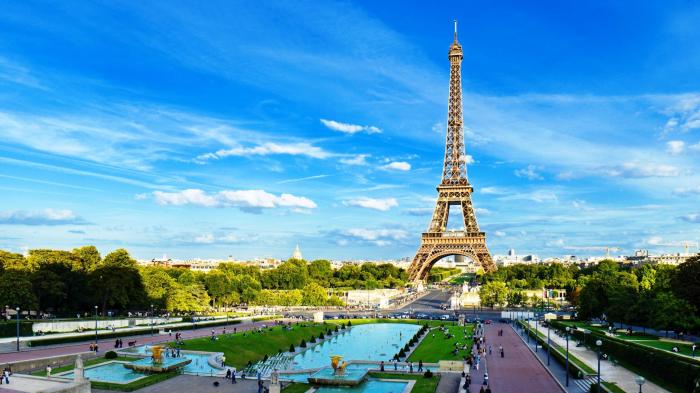
The world has changed dramatically since the pandemic. Travel safety and health protocols are now paramount considerations for any trip. These protocols will likely vary significantly between destinations, reflecting different levels of infection rates, vaccination rates, and government policies. Understanding these nuances is crucial for a smooth and safe travel experience.
Enforced Health and Safety Protocols
Travel destinations will likely enforce a range of health and safety measures. These may include mandatory mask-wearing on public transport and in enclosed spaces, temperature checks at airports and tourist attractions, and social distancing requirements in hotels and restaurants. Some locations may require proof of vaccination or a recent negative COVID-19 test. This will vary from country to country, reflecting their unique circumstances and approaches to public health.
Variations Across Countries, How travel will be different after coronavirus
The enforcement of health and safety protocols will differ considerably between countries. For example, a country with a high vaccination rate might have less stringent mask-wearing mandates than a country with a lower vaccination rate. Some countries may also impose different requirements for entry based on the traveler’s vaccination status or recent health history. It is essential to check the specific regulations of each country well in advance of your trip.
Travel Insurance Coverage
Travel insurance policies may experience adjustments related to health concerns. Pre-existing conditions might be addressed differently. Policies might exclude coverage for COVID-19 related expenses if the traveler fails to follow recommended health protocols. It is essential to carefully review your travel insurance policy’s terms and conditions to understand the coverage for health-related issues. Compare policies from different providers to find one that best fits your needs.
A reputable provider will have details of their policies on their website.
Essential Travel Documents and Requirements
Maintaining updated records is crucial. The essential documents for post-coronavirus travel will include a valid passport, visa if required, and proof of vaccination or a negative COVID-19 test. Each country’s entry requirements may vary. It is highly recommended to check the specific requirements of the destination country’s embassy or consulate. Countries might have specific requirements for digital forms or applications to be submitted online in advance.
Always double-check with the destination’s authorities on specific regulations.
- Passport: A valid passport is required for international travel. Ensure it’s valid for at least six months beyond your intended stay.
- Visa: Depending on your nationality and the destination country, you might need a visa. Check the visa requirements well in advance.
- Proof of Vaccination: Many countries may require proof of vaccination against COVID-19. This could be in the form of a vaccination certificate or an official record of the vaccination.
- Negative COVID-19 Test: Some countries may require a negative COVID-19 test result within a specific timeframe before arrival. This is often a PCR or rapid antigen test.
- Travel Insurance: Having comprehensive travel insurance is highly recommended. This should cover medical expenses, trip cancellations, and other unforeseen circumstances. Review the fine print to confirm COVID-19-related coverage.
Accommodation & Hospitality
The coronavirus pandemic has irrevocably altered the travel landscape, and the hospitality industry is no exception. Hotels, resorts, and other accommodation providers have had to adapt to new safety measures and guest expectations, leading to significant shifts in service offerings and operational procedures. This transformation is not merely a temporary adjustment but a potential evolution that will redefine the future of travel.Hotels are adapting to the evolving demands of travelers, seeking to balance safety and comfort.
This shift includes a heightened emphasis on hygiene and cleanliness, new technologies for contactless check-in and service, and a re-evaluation of shared spaces to prioritize individual guest comfort. The accommodation sector is poised for a period of innovation and adjustment as it strives to regain consumer confidence and meet the changing preferences of the modern traveler.
Potential Changes in Hotel and Accommodation Services
Hotels are implementing rigorous hygiene and sanitation protocols, exceeding previous standards. These measures encompass enhanced cleaning procedures, increased frequency of disinfection, and the use of advanced technologies like UV sterilization. Examples include the use of electrostatic sprayers for thorough disinfection of rooms and common areas, and the implementation of touch-free technologies for check-in and payment.
Evolution of Hygiene and Cleanliness Standards in Accommodation
The pandemic has dramatically accelerated the adoption of higher hygiene standards in accommodation. Hotels are not only increasing the frequency of cleaning but also adopting more advanced methods and technologies. This evolution extends beyond just visible surfaces; it encompasses a holistic approach to cleanliness, including the use of specialized cleaning products and the training of staff on the proper use of hygiene protocols.
Enhanced air filtration systems and improved ventilation in guest rooms are becoming increasingly common, contributing to a healthier and safer environment for guests.
Potential New Models of Accommodation Sharing
The pandemic has also sparked a potential evolution in accommodation sharing models. The rise in popularity of vacation rentals, like Airbnb, has prompted a re-evaluation of safety protocols and guest interaction. The emphasis on privacy and individual spaces may lead to a more significant differentiation in the accommodation offerings. Increased demand for secluded and self-contained accommodations may emerge as a preferred choice, with greater attention to amenities and facilities that promote a more personalized experience.
Comparison of Pre- and Post-Coronavirus Hotel Services
Pre-coronavirus hotels often prioritized maximizing space utilization and maximizing revenue. Post-coronavirus hotels prioritize safety and guest well-being, leading to adjustments in room layouts, the design of common areas, and the overall service experience. The availability of contactless services and the adoption of advanced technologies for sanitization and hygiene are significant differentiators between the two eras. Hotels are adapting their services to meet the changing demands and expectations of guests, who are increasingly prioritizing safety and hygiene in their travel decisions.
Transportation & Logistics
The coronavirus pandemic dramatically altered travel patterns and logistics. This shift has led to a reevaluation of transportation systems, forcing adaptation and innovation in various areas. From airport procedures to public transit, the changes are multifaceted and will likely shape the future of travel for years to come.
Potential Modifications in Transportation Modes and Logistics
The pandemic accelerated the adoption of contactless technologies in transportation. Expect to see increased use of digital ticketing, mobile payments, and automated check-in procedures at airports and train stations. Furthermore, the focus on minimizing physical contact will likely continue to influence transportation choices. For example, ride-sharing services may see an increase in demand for private transportation options compared to public transport.
This is due to the potential for increased safety and reduced risk of contamination.
Expected Changes in Airport and Train Station Procedures
Airport and train station procedures will likely incorporate stricter health and safety protocols. This will involve enhanced cleaning and disinfection measures, mandatory mask-wearing, and potentially temperature checks for passengers. Furthermore, airport security procedures might see changes in queuing systems and passenger flow management to promote social distancing. For instance, airports could implement one-way systems for pedestrian traffic or staggered arrival times for flights to reduce congestion.
Possible Evolution of Public Transportation Systems
Public transportation systems are expected to evolve in response to the pandemic’s impact. This may include more frequent cleaning schedules, increased ventilation systems in buses and trains, and potentially the implementation of air filtration technology. Furthermore, there might be a shift towards more personalized transportation options, such as on-demand shuttles or microtransit systems. These changes aim to enhance passenger safety and reduce the risk of large-scale transmission.
For instance, cities may prioritize bus routes with higher ridership to ensure efficient and effective public transport.
Summary of Impacts on Transportation Infrastructure Post-Pandemic
The pandemic has had a profound impact on transportation infrastructure, highlighting vulnerabilities and prompting necessary changes. This includes the need for increased investment in infrastructure to improve cleaning and sanitation facilities at transportation hubs. Furthermore, the reliance on digital technologies for booking, check-in, and payment will likely continue, demanding significant upgrades in IT systems. This is evident in the increasing use of mobile apps for ticketing and real-time information updates in public transport.
In conclusion, the evolution of transportation systems post-pandemic is likely to be more focused on safety, hygiene, and efficiency, with a strong emphasis on technological integration.
Tourism & Economy
The COVID-19 pandemic dealt a significant blow to the global tourism industry, impacting international travel, domestic tourism, and local economies worldwide. Travel restrictions, lockdowns, and consumer anxieties drastically reduced demand, forcing businesses to adapt and innovate to survive. The recovery process is ongoing, and the future of tourism will likely be shaped by the lessons learned during this challenging period.The tourism sector’s role in global economies is undeniable.
It fuels job creation, supports local communities, and fosters cultural exchange. The pandemic highlighted the interdependence of the tourism industry with other sectors, demonstrating how disruptions in one area can ripple through the entire economy. Understanding the potential impacts and adaptations within the industry is crucial for fostering a resilient and sustainable future.
Potential Impact on the Tourism Industry Globally
The pandemic’s effects on the global tourism industry are multifaceted. Reduced international travel, driven by border closures and health concerns, led to a significant drop in revenue for airlines, hotels, and tour operators. The impact was not uniform across all destinations. Certain regions experienced more severe declines than others, reflecting the diverse nature of travel patterns and the varying degrees of exposure to the virus.
This highlighted the importance of diversifying tourism strategies and building resilience into the industry’s infrastructure.
Potential Impact on Local Economies in Travel Destinations
Travel destinations heavily reliant on tourism experienced a severe economic downturn. Reduced visitor numbers resulted in job losses in hospitality, transportation, and related industries. Small businesses, often the backbone of local economies, were particularly vulnerable. The economic dependence on tourism often meant that these communities were among the first to be impacted and the last to recover.
In some cases, this led to social unrest and economic hardship.
Potential Adaptation of the Tourism Industry
The tourism industry is adapting to the new realities of travel. A shift towards responsible and sustainable practices is evident, with increased focus on minimizing environmental impact and promoting local communities. Digitalization plays a crucial role, with more businesses adopting online booking platforms, virtual tours, and remote services to enhance accessibility and cater to changing customer preferences. Safety protocols and hygiene measures are now integral components of the industry’s operations, demonstrating a commitment to traveler well-being.
Post-coronavirus travel will likely prioritize experiences over sheer volume. We’ll be seeking more authentic connections with destinations, and that means embracing eco-friendly tourism options like eco friendly tourism saint croix caribbean. Sustainable practices and responsible exploration will be key elements in the new travel landscape, shaping how we interact with these beautiful places for years to come.
Potential Economic Impact on the Travel Industry
| Category | Impact |
|---|---|
| International Travel | Significant decline in revenue for airlines, hotels, and tour operators, with varying degrees of impact across destinations. Potential for a long-term shift towards regional travel and less reliance on long-haul flights. |
| Domestic Tourism | Initially impacted by travel restrictions, but showed a faster recovery in some regions. Potential for increased support for local businesses and communities. |
| Local Economies | Significant job losses in hospitality, transportation, and related industries, particularly in tourism-dependent communities. Potential for diversification and development of alternative economic activities. |
Experiential Travel & Activities: How Travel Will Be Different After Coronavirus
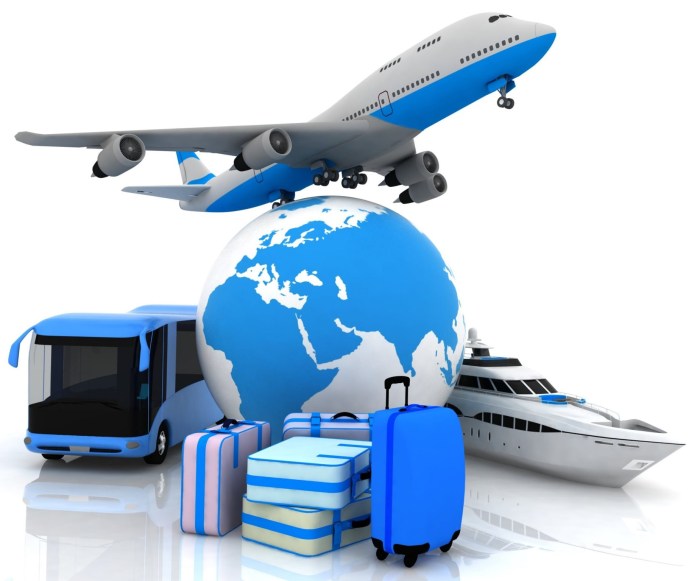
Post-pandemic travel is poised for a significant shift, moving beyond the typical tourist hotspots to embrace unique and personalized experiences. The emphasis will be on authentic encounters and curated journeys, tailored to individual preferences and mindful of health and safety protocols. This new paradigm will encourage responsible tourism and a deeper connection with destinations.
Possible Shifts in Travel Experiences
The coronavirus pandemic has fundamentally altered the travel landscape, prompting a reevaluation of traditional tourism models. This shift will be characterized by a move towards more intimate, curated experiences. Travelers will seek personalized itineraries that cater to their specific interests and preferences, opting for smaller groups or private tours rather than large, impersonal crowds.
Focus on Nature-Based and Remote Travel
The pandemic has highlighted the importance of outdoor spaces and remote destinations. Nature-based travel, encompassing hiking, camping, and wildlife viewing, will likely experience a surge in popularity. Remote areas, with their lower population density, will offer opportunities for tranquil and rejuvenating getaways, while supporting local communities and promoting sustainable practices. Examples include glamping in national parks, eco-lodges in remote mountain ranges, or immersive wildlife safaris.
Adapting Cultural Experiences for Safety
Cultural experiences, often involving close interactions with locals, will require adjustments to prioritize safety. Smaller, more intimate cultural tours and workshops will become more common. Emphasis will be placed on interactions that maintain social distancing and hygiene protocols. Traditional markets and festivals may offer timed entry or staggered attendance, and community tours may be adapted to include pre-booked slots.
Changes in Activities and Tours Offered
The offering of activities and tours will likely undergo a transformation. Expect to see an increase in personalized tours focusing on specific interests, such as culinary experiences, photography workshops, or art immersion. Interactive and hands-on activities will likely be emphasized, allowing travelers to participate in local traditions and craft demonstrations while adhering to safety guidelines. For example, a cooking class might now involve smaller groups with pre-sanitized utensils, or a historical walking tour might be structured to follow a route that avoids congested areas.
Post-coronavirus travel is bound to be a whole new experience. We’ll likely see a surge in exploring local gems, like the fantastic neighborhoods in Belfast, for example. Discovering hidden gems like those in best neighborhoods in belfast will become a key part of a more mindful and locally-focused approach to travel. This new appreciation for the smaller scale will shape how we approach destinations in the future.
Travel Insurance & Financial Planning
The pandemic dramatically altered the travel landscape, impacting everything from booking procedures to safety protocols. Post-pandemic travel will inevitably involve new considerations, particularly regarding financial planning and insurance. This section delves into the anticipated shifts in travel insurance policies, financial implications, and practical budgeting strategies for your next adventure.
Anticipated Changes to Travel Insurance Policies
Travel insurance policies are likely to evolve in response to the lessons learned during the pandemic. Expect more nuanced coverage options, reflecting the increased health and safety concerns. Policies may include pre-existing condition clauses with more clarity, and potentially higher premiums for travelers opting for less comprehensive coverage. This is a response to the increased demand for specific medical coverage and the need for insurers to manage risk more effectively.
Travel insurance providers will need to balance the need for higher premiums with the accessibility of travel insurance for all.
New Financial Considerations for Travelers
The post-pandemic travel environment presents several new financial challenges for travelers. Fluctuating exchange rates, increased airfare and accommodation costs, and potential travel restrictions or delays all need careful consideration. Travelers should also factor in the potential for unexpected costs, like medical expenses or lost baggage, which are often covered by travel insurance. Furthermore, the need for flexibility in travel plans is likely to become more prominent.
Post-coronavirus travel will likely be a blend of cautious exploration and newfound appreciation for local experiences. We’ll probably see a surge in interest in places like the ultimate USA travel destination, the ultimate USA travelist griffith observatory , offering unique and intimate travel experiences. This shift will probably mean more focus on smaller, local businesses and a more mindful approach to travel overall.
This could require adjustments to travel budgets to accommodate potential changes in itineraries.
Budgeting for Post-Coronavirus Travel
Creating a realistic travel budget is crucial for a smooth and enjoyable trip. A meticulous approach to budgeting involves separating fixed and variable expenses. Fixed costs include flights, accommodation, and rental cars, while variables are dining, activities, and souvenirs. A detailed breakdown of these expenses is essential. Begin by researching prices for flights, accommodations, and other necessities.
Then, estimate costs for food, entertainment, and other activities.
Step-by-Step Procedure for Financial Planning
- Assess Your Financial Situation: Evaluate your current savings, income, and existing debts. This preliminary step allows you to determine how much you can comfortably allocate to travel.
- Set a Realistic Budget: Establish a comprehensive budget that includes all anticipated expenses. Break down costs into categories like flights, accommodation, food, activities, and souvenirs. Allocate a specific amount to each category to avoid overspending.
- Create a Savings Plan: Develop a structured savings plan to accumulate funds for your trip. Consider setting aside a fixed amount each month, or creating a dedicated savings account. This will give you a clear timeline for reaching your travel fund goal.
- Explore Travel Insurance Options: Compare and contrast various travel insurance plans to identify one that meets your specific needs and budget. Consider the level of coverage for medical emergencies, trip cancellations, and lost luggage. Be sure to carefully read the fine print and understand the limitations of each policy.
- Track Your Expenses: Maintain a detailed record of your travel expenses. This allows for better control and awareness of spending habits. This tracking is essential for future trips and financial management.
- Contingency Planning: Include a contingency fund for unexpected expenses, such as medical emergencies or unforeseen delays. This can prevent financial stress during your trip.
Travel Restrictions & Regulations
The world of travel has undergone a dramatic transformation since the onset of the coronavirus pandemic. Pre-existing travel norms have been significantly altered, and new regulations have emerged to prioritize health and safety. The future of travel hinges on the evolution of these restrictions and regulations, which will continue to vary significantly across different regions. Understanding these shifting landscapes is crucial for anyone planning international travel.The global landscape of travel restrictions and regulations is characterized by a complex interplay of factors.
Varying levels of vaccination rates, differing epidemiological situations, and the continuous evolution of virus strains influence the types of measures implemented by countries. This dynamic environment requires travelers to stay informed and adaptable to navigate the changing travel landscape.
Expected Changes in Travel Restrictions
Travel restrictions are likely to remain in place for the foreseeable future, though their form and severity will likely evolve. Countries are expected to maintain flexibility in their approaches to managing travel, with adjustments based on the prevalence of the virus and related variants. These adjustments will encompass testing requirements, quarantine periods, and vaccination mandates. The flexibility of these regulations will vary significantly across countries.
Varying Quarantine and Testing Requirements
The duration and strictness of quarantine requirements will likely vary across countries, dependent on local health authorities’ assessment of the epidemiological situation. Countries may implement mandatory testing for travelers upon arrival, or require proof of vaccination or recent negative test results. The criteria for these requirements will fluctuate based on evolving health recommendations and virus mutations.
Pre- and Post-Coronavirus Travel Restrictions Comparison
Pre-coronavirus travel restrictions were relatively straightforward compared to the current situation. Countries generally had standardized visa requirements and limited health checks. Post-coronavirus, countries have adopted a wide range of testing, quarantine, and vaccination requirements, tailored to the specific epidemiological situations. For example, some countries might require a negative PCR test taken within a certain timeframe before travel, while others might mandate proof of vaccination.
These disparities make it crucial for travelers to conduct thorough research and check the specific requirements of the destination country.
Potential for Digital Health Passports
Digital health passports, or similar digital verification systems, are increasingly being explored as a potential solution to streamline travel. These digital tools may contain information on vaccination status, recent test results, and other health-related data. The implementation and acceptance of such digital health passports will be key to easing travel restrictions and facilitating cross-border movement in the future.
While the widespread adoption of these passports is expected, there may be challenges in ensuring data security and interoperability between different systems.
Last Word
In conclusion, the coronavirus pandemic has irrevocably altered the travel industry. From booking procedures to safety protocols, accommodation standards, and transportation logistics, the changes are substantial. The future of travel will be a blend of the familiar and the novel, a cautious optimism mixed with innovative adaptations. This new era demands a more nuanced approach, demanding meticulous planning, and a willingness to adapt to ever-evolving norms.
Travelers will need to embrace a new set of rules and standards, but the experience promises to be richer, more mindful, and more considerate of global health and sustainability.
